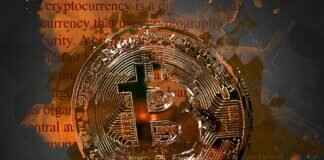Times — and The Times — have changed since the first Festival of Books was held in 1996. What hasn’t changed is the commitment to this vibrant community of readers and writers, with the annual spring ritual continuing to shape and be shaped by the books we love and love to argue over. To celebrate the 30th edition of the festival, the focus has shifted from “place” to “time,” highlighting the best nonfiction books published in the U.S. from 1996 to the present.
‘Me Talk Pretty One Day’ by David Sedaris, published in 2000, showcases the author’s wit and humor as he reflects on his childhood, travels, and growth as a writer. From accidentally coming out as gay to learning French as an adult, Sedaris’s essays are both poignant and hilarious.
Elizabeth Kolbert’s Pulitzer Prize-winning book, ‘The Sixth Extinction: An Unnatural History,’ published in 2014, explores the effects of climate change on our planet. Kolbert vividly portrays the interconnectedness of species and the urgent need to protect our fragile ecosystem.
In ‘Thick: And Other Essays’ by Tressie McMillan Cottom, released in 2019, the author delves into cultural analysis and the portrayal of Black women’s bodies in popular culture. Her essays offer incisive cultural criticism, humor, and profound insights into societal issues.
Lawrence Wright’s ‘The Looming Tower: Al-Qaeda and the Road to 9/11,’ published in 2006, provides a detailed investigation into the lives of the 9/11 hijackers and Osama bin Laden. Wright uncovers the complex motivations behind the terrorist attacks and the failures in U.S. counterterrorism efforts.
‘Barbarian Days: A Surfing Life’ by William Finnegan, published in 2015, offers a captivating memoir of the author’s lifelong passion for surfing. Finnegan’s vivid descriptions of chasing waves around the world make for a thrilling and immersive read.
‘Dave Cullen’s ‘Columbine,’ released in 2009, is a work of outstanding literary journalism that debunks myths about the Columbine High School shooting. Cullen provides intimate portraits of the individuals involved and challenges the narratives that emerged in the aftermath of the tragedy.
These are just a few of the essential nonfiction books from the past 30 years that offer profound insights, compelling storytelling, and thought-provoking analysis. As readers, we are fortunate to have access to such a diverse and impactful array of works that continue to shape our understanding of the world around us. Whether you’re a history buff, a science enthusiast, or a memoir lover, there is something for everyone in the rich tapestry of nonfiction literature.














